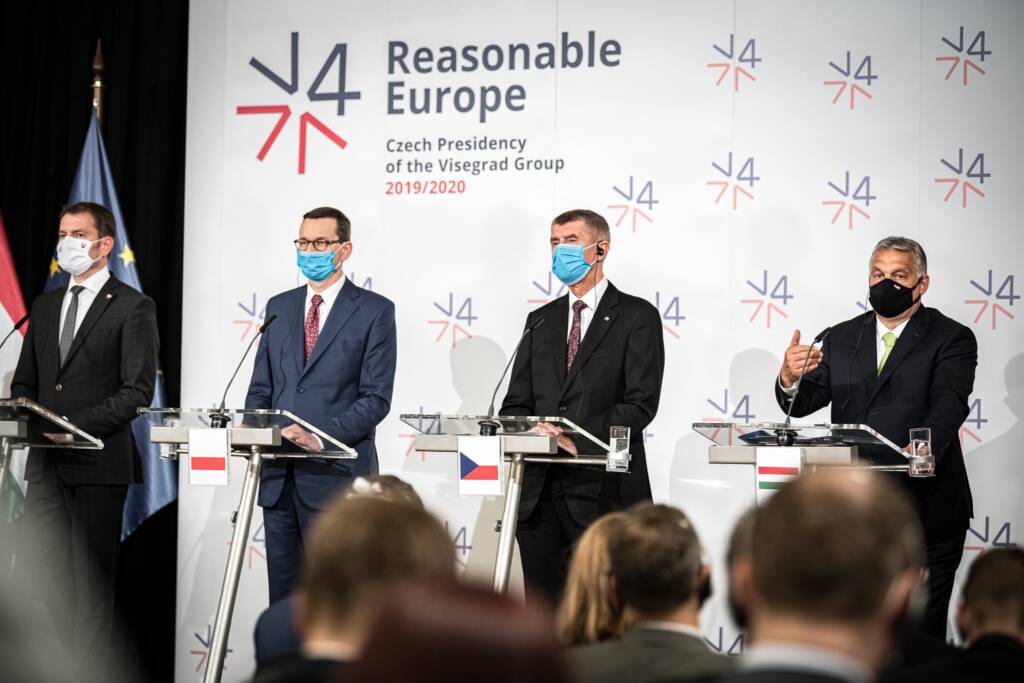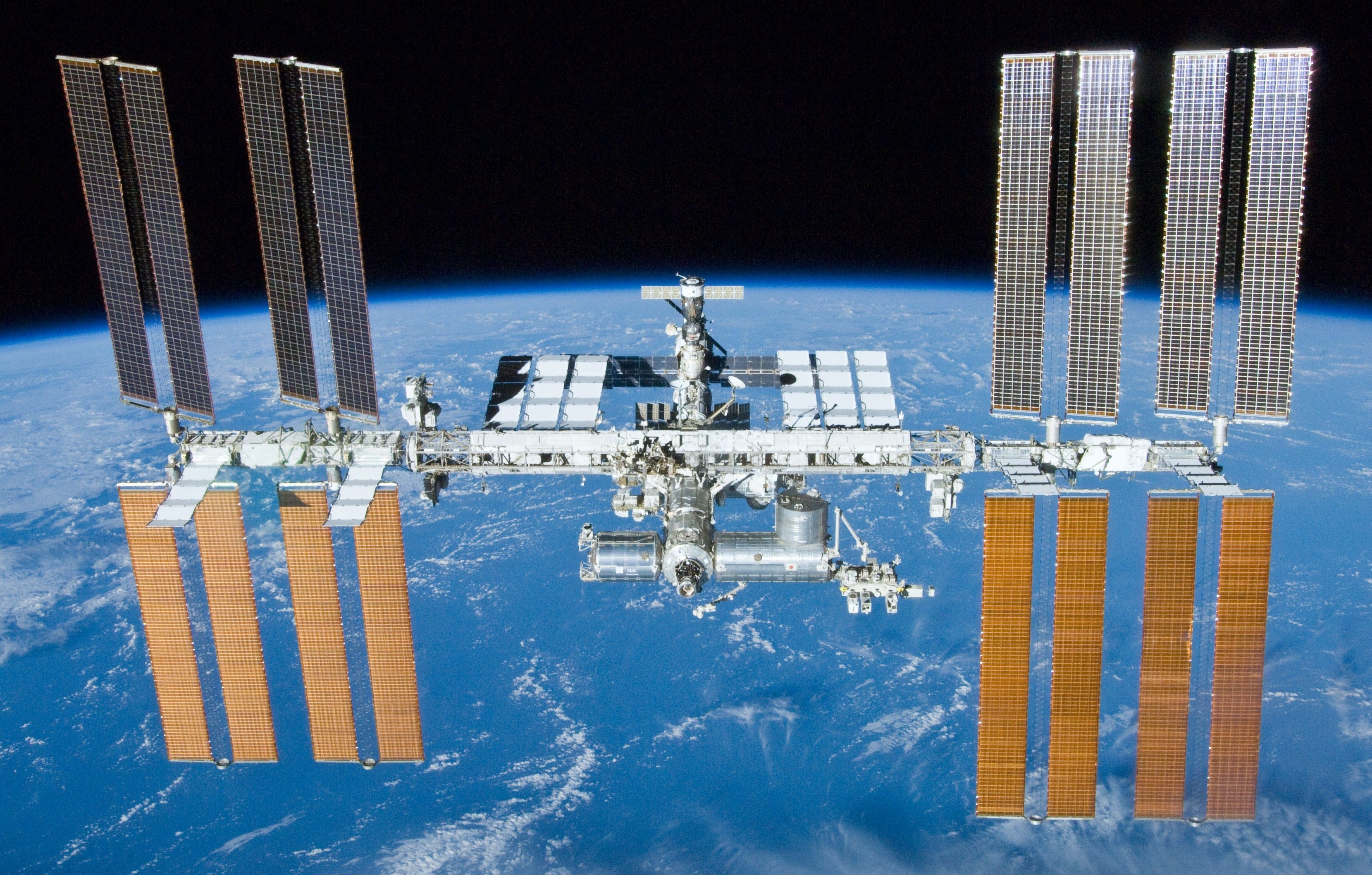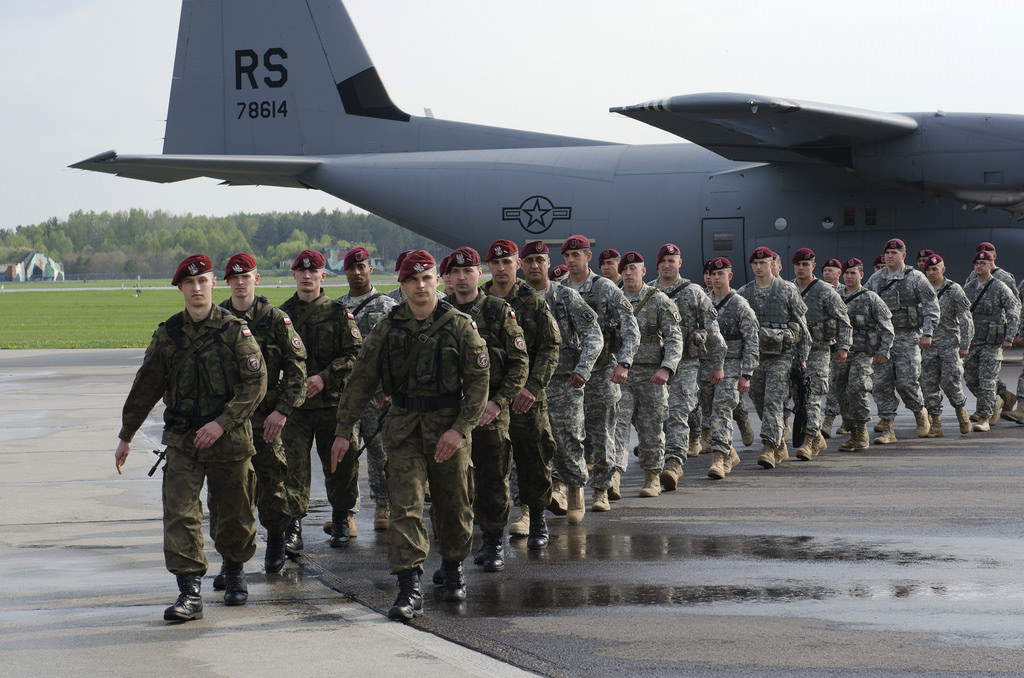Europe of the Carpathians – a forum for meetings and cooperation about preserving the unique richness of culture and nature in Central Europe, about the region, the Three Seas Initiative and the European Union, about our civilisation, strategies and economic development, about prospects.
Europe of the Carpathians Conference on February 27-28 this year will be held in Krasiczyn and Przemyśl, but for the first time in a hybrid formula (online). We will combine the substantive discussion with special events, which are a continuation of the dialogue in the region of Central Europe, i.e. the Carpathians, the Visegrád Group and the Three Seas Initiative.
We will deal with a several issues.
- 30 years of the Visegrád Group in the opinion of parliamentarians. Four countries been bonded with each other for many centuries of common experiences. Is this enough in order to look in a similar way into the future? The existing frictions within the European Community on foreign and migration policy, the strengthening of cooperation and also Brexit made the V4 community ask itself how should the future of the EU look like. The unexpected outbreak of the pandemic has become an additional challenge. EU countries had to make a choice between cooperation or competition with each other in the field of obtaining vaccines and medical equipment.
- Central Europe in the international environment. This is a topic that requires us to ask some questions. Will the White House’s policy towards the European Union and the member states change after the presidential elections in the United States? What will be the strategic international priorities of the new US administration? What will be the relationship between the United States and other powers, including China and Russia? The growing importance of China, as well as Russia’s military activity, pose new challenges. Will the post-pandemic European Union, abandoned by Great Britain, go towards federalisation, or will it be a Europe of solidarity and sovereign nation-states, preserving their political identity?
- North-South infrastructure 2040.Green Deal – Safe on the road, close to travelers, safe for the environment. The lack of adequate infrastructure on the north-south axis has for decades prevented the Three Seas countries from effective communication and development. The construction of the Warsaw-Budapest high-speed railway, Via Carpatia and Via Baltica roads, as well as other infrastructure connecting Poland with its neighbors in the south and north will allow the flow of people and goods and the development of local communities. The European Green Deal policy will also determine the future of transport. Transport is responsible for a quarter of greenhouse gas emissions and its modernisation will be one of the key issues for EU countries in the coming decades.
- The development of border areas in the Three Seas Region is an important development factor for local communities that brings economic profits to the borderlands. Such a strategic location may also be an important advantage for the borderlands, allowing for an even level of development within the countries of the region. The dialogue on border barriers may enrich the discussion on the Macro-regional Carpathian Strategy and adopt an effective policy in order to remove them.
- Digital Europe as the basis for a strong economy and cooperation between the Three Seas countries – the participants of the next panel will discuss the issues of cybersecurity, 5G networks, as well as the possibility of using digitisation in traditional industries such as construction, transport, trade and energy. They will also answer questions about the fourth generation industry, the creation of which is to be the result of the fourth industrial revolution, consisting in networking and digitisation of production along with the modernisation of the economy.
- The European Green Deal is a policy of implementing sustainable development in the economy. Its ambitious assumptions, however, present serious economic and social challenges. In the process of transformation and striving to achieve climate neutrality by 2050 by EU countries, it will be important to adapt the pace of changes to the social and economic conditions of individual Member States. The European Green Deal is an opportunity for family farms, tourism and the region’s water management.
- Is it worth entering the cultural and natural heritage of the Carpathians on the UNESCO list? And also to strengthen the care for cultural heritage in the framework of the Carpathian Convention? These are just some of the questions that the participants of the Cultural Cooperation – Preserving Common Heritage panel will be discussing. The indisputable contribution of Central Europe to the political culture of Europe should go hand in hand with the promotion and care of its common heritage, and this is impossible without developing the rules of international cooperation so that the region’s voice is heard not only in our part of Europe, but on a global scale. The narrative about Central Europe does not correspond to the strategic or geopolitical status of the region. This state should be consistently overcome.
- Born in times of freedom.How to efficiently combine and institutionalise youth cooperation in Central Europe? A barrier for the generation of citizens of our region’s countries born after 1989 is, among other things, the low level of social services. This in turn leads to emigration to the countries of the “old Union”, the phenomenon of “brain drain” and the unfavorable demographic situation in Central European countries. How to make young people recognise Central Europe as the best region of Europe to live in and to have a career?
As for the special events, we will get to know the project of the Visegrád Atlas, a publication on geographical, natural, social and economic diversity, as well as phenomena and processes resulting from historical and contemporary conditions in the V4 countries. There will also be a presentation of the Carpathian brand, the signed Agreement on tourism cooperation in the Carpathian Convention, the expansion of the Ukraine-Poland Academic Youth Exchange Center in Mikuliczyn and on Pip Ivan (Ukraine), the catalogs of the Visegrad4Art exhibition representing selected trends in contemporary art of the Visegrád Group countries, achievements, including publications, the Polish Diet Publishing House and the Institute of Central Europe, as well as Carpathian greetings to the world – a project connecting representatives of the world of culture, scientists and creators, local governments, sports, non-governmental and rescue organisations.
The publication from this edition of The Europe of the Carpathians mainly illustrates examples of sites already entered on the UNESCO list.
The climax of the conference will be the unveiling of the plaque commemorating the 30th anniversary of the Visegrád Group cooperation “referring to the medieval cooperation of kingdoms and nations in Central Europe – a symbol of combining prudence with action for the future.”
We are looking forward to your participation,
Marek Kuchciński, chairman of the foreign affairs committee, Carpathian Parliamentary Group.
—
Click here for the Sejm’s Youtube channel hosting the online conference

Full programme of the two days long conference:
Europe of the Carpathians Conference
February 27-28, 2021
on-line / Przemyśl
Conference moderator: Rusłana Krzemińska, Dr. Jerzy Kwieciński
—
February 27 (Saturday)
|
Special events: 9:30 – 10:00 Presentation of the Visegrad Atlas The Visegrad Atlas is a monograph presenting the geographical, natural, social and economic diversity of the four countries making up the Visegrad Group, i.e. the Czech Republic, Poland, Slovakia and Hungary (V4). The main aim of the study is to show the variety of factors which determine the development of this area, and comprehensively describe geographical phenomena and processes resulting from historical and contemporary development conditions. |
10:00 – 11:15 30 years of the Visegrad Group. New challenges.
– The future of the European Union.
– What are the similarities and differences between the V4 countries? What do we have in common after 30 years of cooperation?
– New challenges. Are countries in the time of a pandemic prepared for change?
Panellists:
- Moderator: Szymon Szynkowskivel Sęk, Secretary of State for Polish Community Abroad, European Policy and Public Diplomacy
- Zsolt Németh, Chairman of the Foreign Affairs Committee of the Hungarian National Assembly
- Jaroslav Bžoch, Vice-chairman of the Foreign Affairs Committee of the Lower Chamber of the Czech Republic
- Peter Osuský, Vice-chairman of the Foreign Affairs Committee of the National Council of the Slovak Republic
- Marek Kuchciński, Chairman of the Foreign Affairs Committee of the Sejm of the Republic of Poland
- Bogdan Klich, Chairman of the Foreign and European Union Committee of the Senate of the Republic of Poland
| 11:15 – 11:30 Carpathian Greetings to the World – short greetings from various and interesting places in the Carpathians, sent by interesting people; a form of popularization and joint action for the cultural and natural heritage of the Carpathians. |
11:30 – 12:45 Central Europe in the international environment (creating a new continental and global order)
– Bukaresztańska 9, Three Seas Initiative
– Change in the geopolitical situation after the elections in the United States
– The rise of China after the pandemic
– Changes in the political order in the European Union in the context of discussions on its reform
– Increase of Russia’s military potential
Panellists:
- Moderator: Przemysław Żurawskivel Grajewski, Chairman of the Three Sees Association
- Ryszard Terlecki, Deputy Marshal of the Sejm of the Republic of Poland
- Krzysztof Szczerski, Secretary of State at the Chancellery of the President
- Asta Skaisgyryte, Chief Adviser to the President of Lithuania
- Richard Hörcsik, Chairman of the European Affairs Committee
- Zygimantas Pavilionis, Chairman of the Foreign Affairs Committee of the Lithuanian Parliament
- Ben-Oni Alderean, Vice-chairman of the Foreign Affairs Committee of the Romanian Parliament
- Zdzisław Krasnodębski, Member of the European Parliament
| 12:45 – 13:00 Carpathian Greetings to the world |
13:00 – 14:15 North-South infrastructure 2040. The Green Deal – Road safety. Safe and close to travellers. Safe for the environment
– High-speed rail network between EU countries
– Roads (Via Carpathia, Via Baltica, A1, S3)
– Transport security
– European Green Deal – transport dimension
Panellists:
- Moderator: Włodzimierz Zientarski, automotive journalist, road safety expert
- Vladislav Krikliy, Minister of Infrastructure of Ukraine
- Marius Skuodis, Minister of Transport and Communications of Lithuania
- Andrzej Adamczyk, Minister of Infrastructure
- Jan Sechter, Deputy Minister for EU Affairs and International Relations, Railways, Water Transport, Civil Aviation, ITS, Space, Research and Development, Czech Republic
- Adrian Covasnianu, SecretaryState of the Ministry of Transport and Infrastructure, Romania
- Péter Tóth, Undersecretary of State for Transport, Hungary
- Peter Hrapko, Director of the Department for Transport Strategy of the Ministry of Transport and Construction of Slovakia
|
A special event: 14:15 – 15:15 Unveiling of the commemorative plaque: the chairmen of the foreign affairs committees of the Czech Republic, Poland, Slovakia and Hungary will commemorate the 30th anniversary of the Visegrad Group Signing an agreement on cooperation between the Carpathian Euroregion – Poland and the Secretariat of the Carpathian Convention for the coordination of sustainable tourism development in the Carpathians. |
15:15 – 16:30 V4 / Three Seas – development of border areas
– The Carpathian Strategy – the current state of work and challenges for the future
– Development of border areas – the Three Seas areas of key importance for cohesion and integration.
– Information / Research – without information and research supporting the public and private sectors, development objectives cannot be achieved.
– In search of a new quality of cross-border cooperation in the region.
– Barriers to cross-border cooperation – the role of governments and parliaments in removing them.
Panellists:
- Moderator: Dawid Lasek, Vice President of the Management Board of the Association of the Carpathian Euroregion
- Małgorzata Jarosińska-Jedynak, Secretary of State at the Ministry of Funds and Regional Policy
- Paweł Jabłoński, Undersecretary of State, Ministry of Foreign Affairs
- Michal Šipoš, Chairman of the Slovak-Polish Friendship Parliamentary Group
- Jerzy Polaczek, Member of the Sejm, Head of the Polish-Slovak Parliamentary Group
- Ján Hudacký, Honorary Consul of the Republic of Poland in Prešov
- Ana Nikolov, Head of the Association of European Border Regions, Serbia
- Grzegorz Górny, The Three Seas Association
- Voice in the discussion: Władysław Ortyl, Marshal of the Podkarpackie Voivodeship
| 16:30 – 16:45 Carpathian greetings to the world |
16:45 – 18:00 Digital Europe is the basis of a strong economy and the development of social services, and a chance to deepen cooperation between the Three Seas countries (TSI)
– Digitization of traditional industries: construction, transport, trade, energy.
– 5G network in TSI countries.
– Common standards for maintaining cybersecurity.
– Industry 4.0 as an element of a competitive economy.
– Digitization of education and health care – opportunities, projects, needs
Panellists:
- Moderator: Barbara Bartuś, Chairperson of the Delegation of the Sejm and Senate of the Republic of Poland to the OSCE Parliamentary Assembly, Poland
- Tiit Riisalo, Adviser to the President of Estonia
- Petr Očko, Deputy Minister of Industry and Trade of the Czech Republic
- Sabin Sarmas, Chairman of the Committee for Information Technologies and Communications of the Romanian Parliament
- Peter Kremský, Chairman of the Economic Affairs Committee of the National Council, Slovakia
- Beata Daszyńska-Muzyczka, President of Bank Gospodarstwa Krajowego State Bank, Poland
- Michał Kanownik, President of the Management Board of the Digital Poland Association, Poland
- Voice in the discussion: Justyna Orłowska, Plenipotentiary of the Prime Minister for GovTech, Poland
|
A special event: 18:15 – 18:45 Presentation of the art catalogues of Wyszehrad4ART and the Sejm Publishing House in Krasiczyn. An exhibition of paintings by a Slovak artist: František Turcsányi at the National Museum or at the Castle in Krasiczyn |
February 28 (Sunday)
9:00 – 10:15 The European Green Deal as an opportunity for the environment and organic farming
– Agriculture and rural areas in mountain areas.
– Family farms.
– Green Deal (new forest strategy, protected landscape areas).
– What opportunities and threats does the Green Deal create for agriculture and tourism?
– The importance of forests as a water retention factor.
Panellists:
- Moderator: Bogdan Rzońca, Member of the European Parliament
- Janusz Wojciechowski, EU Commissioner for Agriculture and Rural Development
- Michał Kurtyka, Minister of Climate and Environment, Poland
- Grzegorz Puda, Minister of Agriculture and Rural Development, Poland
- Andrej Gajdoš, State Secretary of the Ministry of Agriculture and Rural Development
- Viktoras Pranckietis, Chairman of the Committee on Rural Affairs of the Seimas of the Republic of Lithuania
- Sándor Font, Chairman of the Committee on Agriculture of the Hungarian National Assembly
- Alexandr Vondra, European Committee on Environment, Public Health and Food Safety, Member of the European Committee on Climate, Czech Republic
|
A special event: 10:15 – 10:35 Ukraine-Poland Academic Youth Exchange Centre |
10:35 – 11:50 Cultural cooperation – preserving the common heritage
– Is it worth entering the cultural and natural heritage of the Carpathians on the UNESCO list?
– Contribution of Central Europe to the political culture of Europe (integration achievements of the region, Jagiellonian and Habsburg heritage, multi-religion and multi-ethnicity, small homelands, cultural pluralism, a new understanding of tolerance after totalitarian crimes and ethnic cleansing).
– Via Culturalia, the Crimson Trail, the Jagiellonian Trail and others.
Panellists:
- Moderator: Waldemar Paruch, Head of the Department of Theory of Politics and Methods in Political Science and Administration
- Mykoła Kniażycki, Chairman of the Subcommittee on Cultural Policy at the Supreme Council for Humanitarian Policy, Ukraine
- Beata Surmacz, Director of the Institute of Central Europe
- Adrienne Körmendy, former Consul General of Hungary in Krakow
- Csaba G. Kiss, em. EötvösLoránd University, Budapest, Hungary
- Pavol Macala, Interpersonalism Association, Slovakia
- Markijan Malsky, University of Lviv, Ukraine
- Georgis Zarotiadis, Thessaloniki University of Economics, President of the Association of Economic Universities in Southern, Eastern Europe and the Black Sea Region, Greece
- Voice in the discussion: Dariusz Dyląg, Res Carpathica Association
| 11:50 – 12:00 Carpathian greetings to the world |
12:00 – 13:15 Born in times of freedom. How to efficiently connect and institutionalize youth cooperation in Central Europe?
– What attitudes do young people in the countries of the region represent?
– Mutual thresholds and barriers. The problem of low level of social services as a factor discouraging the young generation from living in the countries of the region.
-How to make young people recognize Central Europe as the best region of Europe to live and care for?
Panellists:
- Moderator: Maciej Szymanowski, Director of the WacławFelczak Polish-Hungarian Cooperation Institute
- Illés Boglárka, Deputy Minister of Human Resources, Hungary
- Anna Andrejuvová, Member of the National Council of the Slovak Republic
- Zbigniew Stankiewicz, Archbishop of Riga, Latvia
- MatyášZrno, Editor-in-chief of Konzervativnínoviny, Czech Republic
- Danuta Nierada, Creative Director of the State of Poland Foundation
14:00 Carpathian ski tour (Arłamów / Bieszczady)
End of the conference



